A party dedicated to promoting rural Ireland could win between 10 and 20 Dáil seats in the next general election, Michael Fitzmaurice is convinced.
The Roscommon-Galway TD has staked his political future on establishing a new political force to represent what he describes as this “woefully disconnected” section of society.
And he is adamant that a party representing rural Ireland must seek a place at the cabinet table, using its influence to frame the next programme for Government.
Like the Boer Burger Beweging Party (BBB) that recently won 15 out of the 75 seats in the Dutch senate, Fitzmaurice says there is a cohort of rural dwellers who feel they are not represented by either the parties of Government or those in opposition.
Farmers are particularly disillusioned, he contends, over the manner in which the sector has been demonised in relation to climate change and other environmental issues.
“I’ve had farmers say to me that they’re nearly ashamed to say they’re farmers,” Fitzmaurice says.
“Like, where are we gone to. It’s nearly criminal what’s going on,” he adds.
The feeling that farmers and rural communities have limited input into the policies being brought forward to tackle climate change and biodiversity loss has contributed to the growing sense of disconnect, Fitzmaurice claims.
“I am awful afraid of what is coming down the line, particularly the policies around the Nature Restoration Law,” he admits.
“I am fearful of it. That is not scaremongering, but I am. And I am fearful of the proposals around the land-use policy,” he says.
While quick to point out that he is not a climate denier, he argues that policymakers need to get their “figures right” when designing measures to tackle carbon emissions.
Fitzmaurice cites the example of the new National Land Cover Map of Ireland, which puts Ireland’s forestry area at close to 18% of the country when hedgerows are taken into account. The accepted figure was formerly 11%.
“Now that is a fair bit of a difference when you’re adding up carbon,” he points out.
Rural communities
Fitzmaurice says that harnessing the latent frustration within rural communities means that any new rural party will have to contest a broad sweep of constituencies in the next general election, and he has not ruled out running candidates in next year’s local elections.
He discounts the notion of the new organisation confining itself regionally – to the west, for example – or to constituencies where there is a sitting independent TD who may be enticed to come on board.
“We will target everything that is rural outside Dublin city,” he says.
“Most constituencies go out to rural areas – even north county Dublin – and rural people are facing the same challenges in all of them,” he adds.
Asked if he will be able to build an electoral machine within the next year that has the capacity to fight an election nationally, Fitzmaurice insists that the new party will not be all about him.
“In fairness, there has been a huge reaction to the concept of a rural party. I have talked to prominent people in farming groups and in business who want to get involved in this,” he explains.
And while Fitzmaurice admits that he is in talks with some of the other 22 Independent TDs, he insists that the rural party venture is not dependent on getting a sizeable proportion of these deputies on board.
“There is one thing people need to get clear in their head, yes, I’ll be talking to Independents, but I’ll be talking to more than Independents,” he says.
In the next general election, Fitzmaurice aims to emulate the 2020 success of the Green Party by winning enough seats to potentially hold the balance of power. The rural party could then offer itself as an alternate lynch-pin for a new coalition.
This is an ambitious target, but one Fitzmaurice sees as attainable.
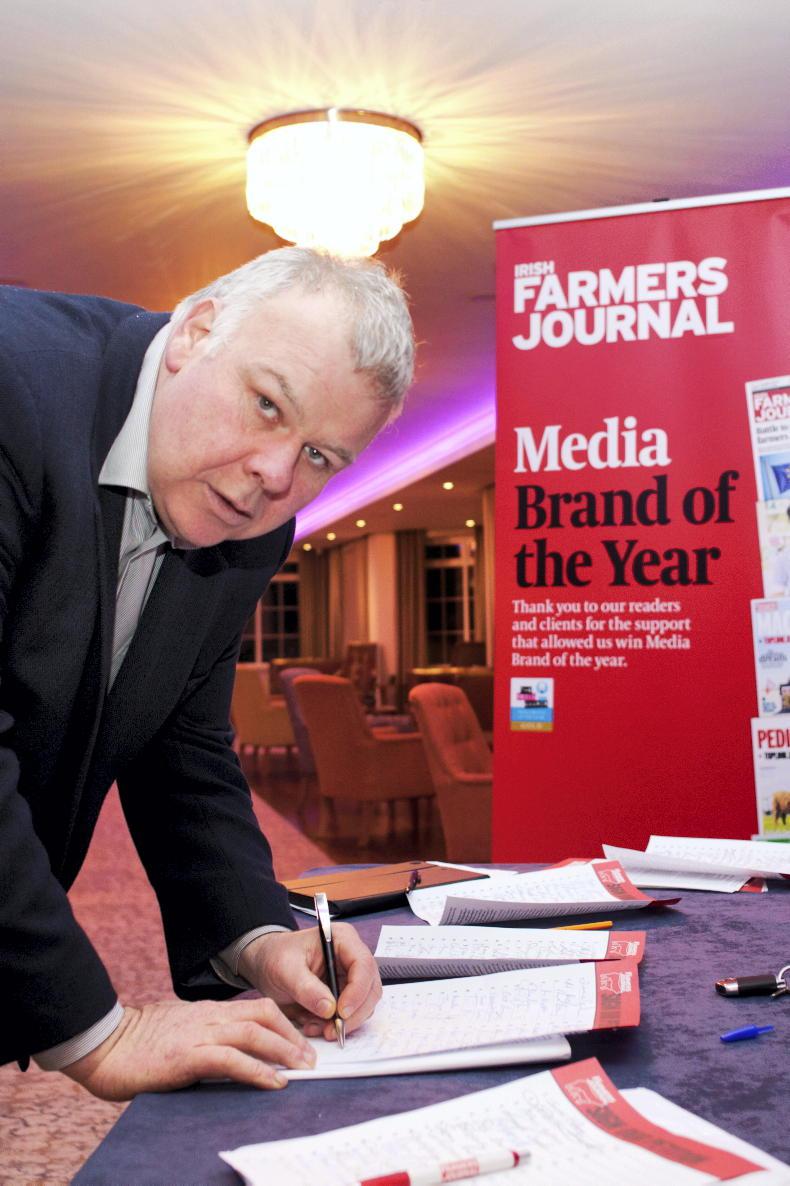
Michael Fitzmaurice TD.
However, if rural party initiative falters for whatever reason, the Independent TD is adamant that he will walk away from politics.
“I have made this clear; if this party doesn’t come about, then I’m not running again – that’s it,” he told the Irish Farmers Journal.
However, Fitzmaurice is not contemplating failure. He is confident that there is an opening in the political landscape for a rural party.
Getting others to believe is now the challenge.
Farming and rural regeneration to dominate agenda
Michael Fitzmaurice realises that building a broad policy platform will be essential to attract voters from beyond the tight confines of farming.
The first headline that has to be in agriculture is that there will be no national cull
“Other people will obviously have an input on the policy side, but my own personal opinion is that we have to focus on agriculture, rural investment and regional regeneration, health and housing,” he maintains.
“The first headline that has to be in agriculture is that there will be no national cull. That will have to be there in black and white. We can go through each sector after that and it will obviously have to be a fairly detailed document,” Fitzmaurice says.
“And there will be certain things in agriculture that will be at loggerheads with the climate change agenda, but so what. It’s about time we stood up for our industry,” he says.
Asked about his position on the Nitrates Derogation, Fitzmaurice insists that it should be utilised to accommodate family farms, not multi-platform dairy operations.
“On the Nitrates Derogation, I have said consistently that it should be available to farmers with 100 to 140 cows. After that, I don’t see why we should be facilitating the continued expansion of 400- to 500-cow herds,” he says.
In terms of rural regeneration, the west of Ireland TD believes the national road network needs to be completed, while he also favours the creation of low-tax strategic economic zones to boost regional investment, provide jobs and generally “lift areas”.
“With regard to health, the dog in the street knows that we need 2,000 more [hospital] beds. You can’t do that in a year, but we have to guarantee them over a three- or five-year term.”
Party must shape programme for Government
The rural party will have to help frame the next programme for Government to deliver the organisation’s policy agenda, Fitzmaurice maintains.
As the old diplomatic dictum goes; if you’re not at the negotiating table, then you’re probably on the menu. And Fitzmaurice certainly concurs with this analysis.
Credit
Indeed, although he vehemently disagrees with the Green Party, he concedes that they deserve credit for putting their policy agenda at the very core of the current programme for Government.
While critics argue that Fitzmaurice had opportunities to support the establishment of Governments in 2016 and 2020 but refused, he says the agreed programmes for Government on both occasions did not include “in black and white” the measures he had sought for his constituents.
Limitations
Indeed, these failures illustrate the limitations of operating as an Independent TD, he contends, and highlight the need for rural Ireland to be represented in the formulation of the next Government’s policy agenda.
“We need to be on the hurling pitch, not in the next field,” Fitzmaurice says.
A party dedicated to promoting rural Ireland could win between 10 and 20 Dáil seats in the next general election, Michael Fitzmaurice is convinced.
The Roscommon-Galway TD has staked his political future on establishing a new political force to represent what he describes as this “woefully disconnected” section of society.
And he is adamant that a party representing rural Ireland must seek a place at the cabinet table, using its influence to frame the next programme for Government.
Like the Boer Burger Beweging Party (BBB) that recently won 15 out of the 75 seats in the Dutch senate, Fitzmaurice says there is a cohort of rural dwellers who feel they are not represented by either the parties of Government or those in opposition.
Farmers are particularly disillusioned, he contends, over the manner in which the sector has been demonised in relation to climate change and other environmental issues.
“I’ve had farmers say to me that they’re nearly ashamed to say they’re farmers,” Fitzmaurice says.
“Like, where are we gone to. It’s nearly criminal what’s going on,” he adds.
The feeling that farmers and rural communities have limited input into the policies being brought forward to tackle climate change and biodiversity loss has contributed to the growing sense of disconnect, Fitzmaurice claims.
“I am awful afraid of what is coming down the line, particularly the policies around the Nature Restoration Law,” he admits.
“I am fearful of it. That is not scaremongering, but I am. And I am fearful of the proposals around the land-use policy,” he says.
While quick to point out that he is not a climate denier, he argues that policymakers need to get their “figures right” when designing measures to tackle carbon emissions.
Fitzmaurice cites the example of the new National Land Cover Map of Ireland, which puts Ireland’s forestry area at close to 18% of the country when hedgerows are taken into account. The accepted figure was formerly 11%.
“Now that is a fair bit of a difference when you’re adding up carbon,” he points out.
Rural communities
Fitzmaurice says that harnessing the latent frustration within rural communities means that any new rural party will have to contest a broad sweep of constituencies in the next general election, and he has not ruled out running candidates in next year’s local elections.
He discounts the notion of the new organisation confining itself regionally – to the west, for example – or to constituencies where there is a sitting independent TD who may be enticed to come on board.
“We will target everything that is rural outside Dublin city,” he says.
“Most constituencies go out to rural areas – even north county Dublin – and rural people are facing the same challenges in all of them,” he adds.
Asked if he will be able to build an electoral machine within the next year that has the capacity to fight an election nationally, Fitzmaurice insists that the new party will not be all about him.
“In fairness, there has been a huge reaction to the concept of a rural party. I have talked to prominent people in farming groups and in business who want to get involved in this,” he explains.
And while Fitzmaurice admits that he is in talks with some of the other 22 Independent TDs, he insists that the rural party venture is not dependent on getting a sizeable proportion of these deputies on board.
“There is one thing people need to get clear in their head, yes, I’ll be talking to Independents, but I’ll be talking to more than Independents,” he says.
In the next general election, Fitzmaurice aims to emulate the 2020 success of the Green Party by winning enough seats to potentially hold the balance of power. The rural party could then offer itself as an alternate lynch-pin for a new coalition.
This is an ambitious target, but one Fitzmaurice sees as attainable.

Michael Fitzmaurice TD.
However, if rural party initiative falters for whatever reason, the Independent TD is adamant that he will walk away from politics.
“I have made this clear; if this party doesn’t come about, then I’m not running again – that’s it,” he told the Irish Farmers Journal.
However, Fitzmaurice is not contemplating failure. He is confident that there is an opening in the political landscape for a rural party.
Getting others to believe is now the challenge.
Farming and rural regeneration to dominate agenda
Michael Fitzmaurice realises that building a broad policy platform will be essential to attract voters from beyond the tight confines of farming.
The first headline that has to be in agriculture is that there will be no national cull
“Other people will obviously have an input on the policy side, but my own personal opinion is that we have to focus on agriculture, rural investment and regional regeneration, health and housing,” he maintains.
“The first headline that has to be in agriculture is that there will be no national cull. That will have to be there in black and white. We can go through each sector after that and it will obviously have to be a fairly detailed document,” Fitzmaurice says.
“And there will be certain things in agriculture that will be at loggerheads with the climate change agenda, but so what. It’s about time we stood up for our industry,” he says.
Asked about his position on the Nitrates Derogation, Fitzmaurice insists that it should be utilised to accommodate family farms, not multi-platform dairy operations.
“On the Nitrates Derogation, I have said consistently that it should be available to farmers with 100 to 140 cows. After that, I don’t see why we should be facilitating the continued expansion of 400- to 500-cow herds,” he says.
In terms of rural regeneration, the west of Ireland TD believes the national road network needs to be completed, while he also favours the creation of low-tax strategic economic zones to boost regional investment, provide jobs and generally “lift areas”.
“With regard to health, the dog in the street knows that we need 2,000 more [hospital] beds. You can’t do that in a year, but we have to guarantee them over a three- or five-year term.”
Party must shape programme for Government
The rural party will have to help frame the next programme for Government to deliver the organisation’s policy agenda, Fitzmaurice maintains.
As the old diplomatic dictum goes; if you’re not at the negotiating table, then you’re probably on the menu. And Fitzmaurice certainly concurs with this analysis.
Credit
Indeed, although he vehemently disagrees with the Green Party, he concedes that they deserve credit for putting their policy agenda at the very core of the current programme for Government.
While critics argue that Fitzmaurice had opportunities to support the establishment of Governments in 2016 and 2020 but refused, he says the agreed programmes for Government on both occasions did not include “in black and white” the measures he had sought for his constituents.
Limitations
Indeed, these failures illustrate the limitations of operating as an Independent TD, he contends, and highlight the need for rural Ireland to be represented in the formulation of the next Government’s policy agenda.
“We need to be on the hurling pitch, not in the next field,” Fitzmaurice says.






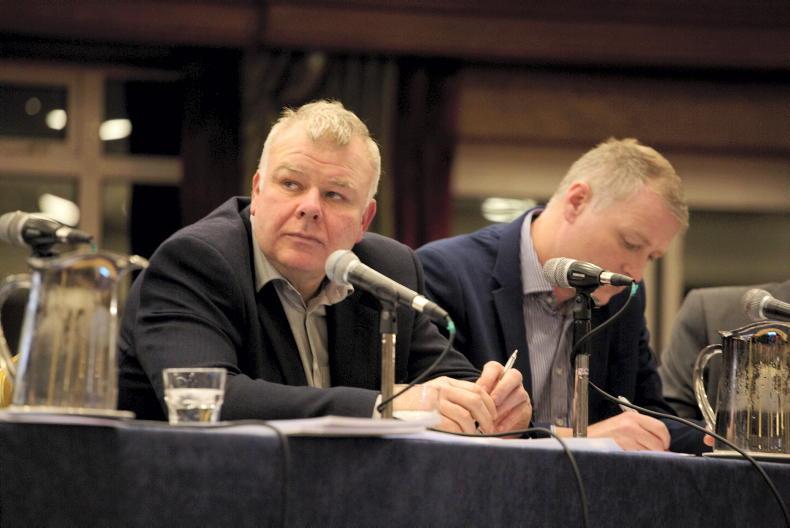
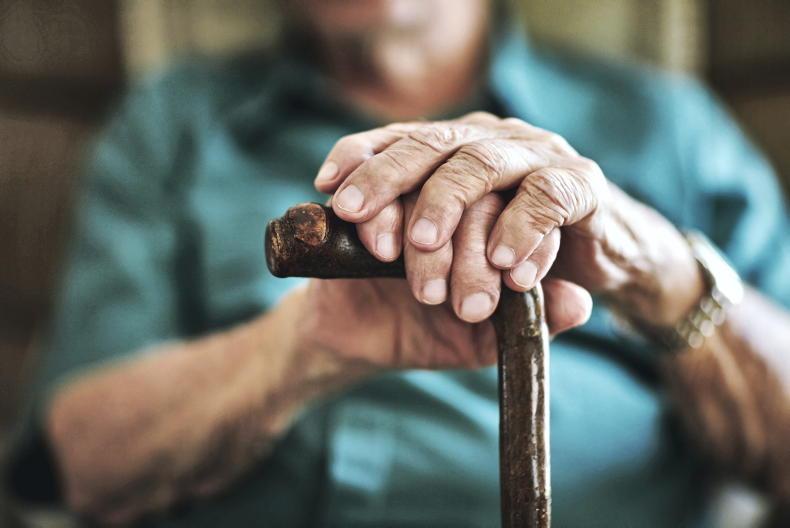
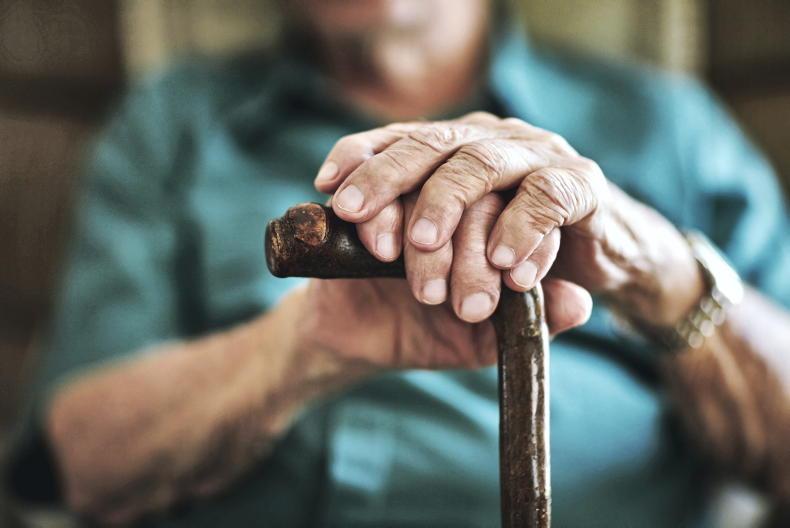
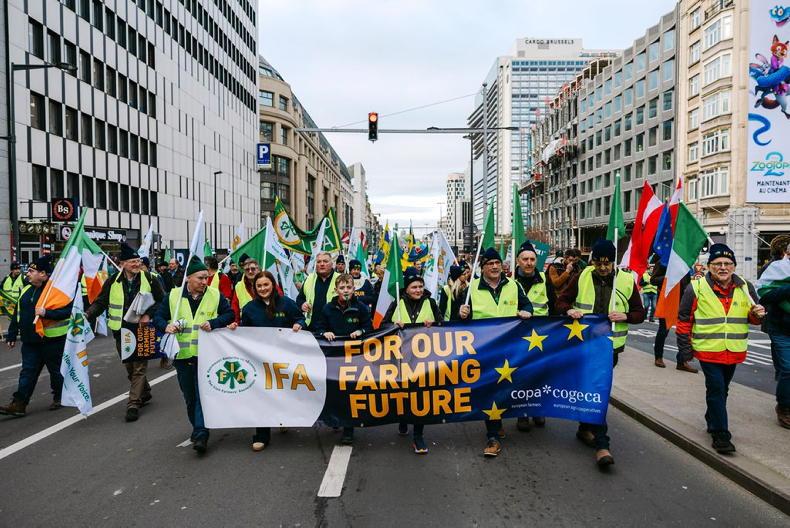

SHARING OPTIONS